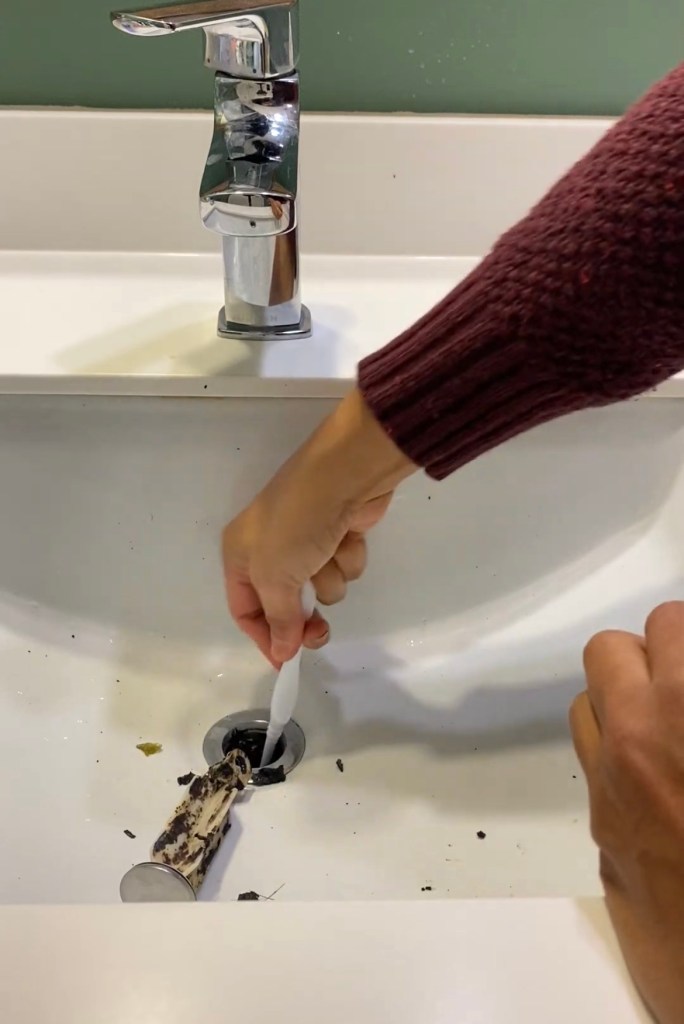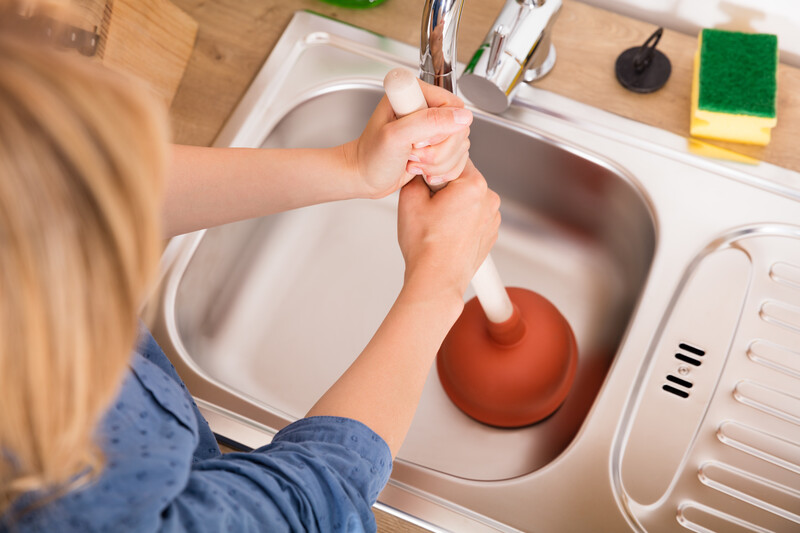Have you been hunting for know-how around Solved! How to Fix a Slow Sink Drain?

Intro
We have actually all existed: You're cleaning your teeth or washing your hands, and you discover the water pooling in the sink. Rather than rapidly swirling down the tubes, it lingers, transforming your once-refreshing morning regimen right into a mini swamp scene. A slow-draining sink isn't just frustrating; it's commonly an indication of larger plumbing concerns hiding below the surface area. The bright side is that the majority of slow-draining sinks can be fixed with a little expertise, a couple of standard tools, and some persistence. Prepared to tackle this job head-on? Let's roll up our sleeves and dive right in.
Recognizing the Sources Of a Slow-Draining Sink
Before you start poking around in your pipes, it assists to know what could be creating the slowdown. Comprehending the origin makes it simpler to select the appropriate solution.
Common Perpetrators Behind Slow Drain
So, what's blocking points up? Typically, it's a mixture of everyday particles-- think hair, soap residue, toothpaste residue, and remaining food fragments. Gradually, these little bits accumulate and hold on to the pipeline wall surfaces, gradually tightening the passage and making it harder for water to go through. Sometimes, mineral deposits from tough water can likewise include in the substance, creating the perfect tornado for stubborn blockages.
When is it Time to Act?
If you discover the water draining pipes slower than typical, it's a great idea to intervene faster as opposed to later. Waiting as well long can bring about complete obstructions, undesirable smells, or even pipe damage. If the water takes more than a couple of secs to clean out after shutting off the faucet, consider it a red flag and get ready to put on your do it yourself hat.
Devices and Materials You'll Need
The right tools make all the difference. The good news is, you won't need a totally equipped plumbing professional's van to get the job done.
Important Devices for Do It Yourself Repair Works
A bettor is your go-to beginning factor. A small, sink-sized plunger produces suction that can remove small clogs. For more persistent obstructions, a drain snake (often called a plumber's auger) works marvels. A pair of handwear covers, a flashlight, and perhaps a set of protective goggles are additionally convenient.
Suggested Cleansing Solutions
Moderate meal soap and warm water can assist break down greasy build-up. A combination of cooking soft drink and vinegar is a time-tested natural home remedy, and enzymatic cleaners offer an even more environment-friendly strategy. Keep chemical drain cleaners as a last resort, as they can be rough on your pipelines.
Safety And Security First: Safety Measures and Prep work
Before you launch into unclogging mode, think about safety and security. You're taking care of possibly filthy water and particles, so slip on a pair of handwear covers. If you're using chemical cleaners, ensure the room is well-ventilated and follow the guidelines on the label.
Safety Equipment and Work Space Setup
Lay down some old towels or rags around the sink area to capture dashes. Eliminate any type of things that may enter your means, like soap dispensers or tooth brush owners. Ensure you have good lights-- order a flashlight if needed.
Step-by-Step Guide to Dealing With a Slow-Draining Sink
Currently, allow's enter the nitty-gritty. This step-by-step process will certainly guide you through basic strategies to restore your sink's water drainage.
Step 1: Eliminate and Clean the Stopper
Usually, the stopper (that small plug you lower to obstruct water) is the initial perpetrator. Remove it carefully and clean off any hair or substance trapped around its base. Rinse it thoroughly prior to placing it back in place.
Action 2: Make Use Of a Plunger to Dislodge Debris
Got that bettor all set? Position it over the drainpipe and provide it a few company pumps. The concept is to produce suction that can loosen any type of blockage. If you see littles debris drifting up, you get on the right track.
Action 3: Try a Drainpipe Serpent or Cord Wall Mount
If the bettor doesn't do the trick, it's time to bring out the drain snake. Carefully feed it into the drainpipe and twist as you go. You might feel some resistance-- that's most likely the obstruction. Keep twisting and pulling until you eliminate the blockage. If you don't have a drainpipe snake, a corrected the alignment of cable wall mount can work in a pinch.
Tip 4: Use a Do It Yourself Drainpipe Cleanser
An all-natural cleaner made from cooking soft drink and vinegar can break down residual crud. Put half a mug of baking soda into the drainpipe, adhered to by half a mug of vinegar. Allow it fizz for around 15 minutes, after that flush with warm water. This chemical reaction frequently does wonders for small obstructions.
Tip 5: Reassemble and Examine the Sink
Put every little thing back together and run the tap. Does the water currently swirl down the drain at a reputable rate? If yes, provide on your own a pat on the back. Otherwise, do not misery-- there are still a few more tricks up your sleeve.
Alternate Techniques for Stubborn Clogs
Not all blockages are developed equivalent. If your sink still declines to coordinate, consider these alternative options.
Sodium Bicarbonate and Vinegar Technique
We already touched on this, but it's worth keeping in mind once more. This mild, green approach is more secure than chemical cleansers and usually fairly effective.
Enzymatic Drain Cleaners
Enzyme-based cleansers use all-natural bacteria to digest organic matter. They're an excellent choice if you're aiming to stay clear of rough chemicals. Simply remember, they might take a bit longer to function their magic.
Chemical Drain Cleansers: Benefits And Drawbacks
Chemical cleansers can blast via hard blockages fast, yet they're not without disadvantages. They can create warm and fumes, damages pipes if utilized exceedingly, and present ecological risks. Use them moderately, and always comply with the instructions thoroughly.
Preventive Measures to Maintain Your Sink Flowing
Avoidance is the very best treatment. By embracing a few straightforward routines, you can keep your sink from reducing to begin with.
Regular Cleaning Up Behaviors
Clean down the sink basin and component area regularly. Eliminate hair or food fragments prior to they have a chance to wash down the drain.
Avoiding Damaging Substances Down The Tubes
Think twice before unloading coffee grounds, oil, or coarse veggie scraps down the sink. These wrongdoers hold on to pipe walls, producing blockages with time.
Routine Upkeep Checks
Schedule a fast monthly assessment. Run warm water with the sink for a few mins, focusing on the flow. If it appears sluggish, act fast before it becomes a full-on obstruction.
When to Call a Professional Plumber
Often, regardless of how tough you try, that clog simply won't budge. That's when it's time to generate the pros.
Indicators That Indicate an Extra Significant Issue
If your sink drains gradually despite multiple attempts, or if you observe water supporting in various other components (like your shower or toilet), you might have a much more major pipes issue hiding much deeper in the system.
Stabilizing DIY Efforts with Professional Aid
While DIY can save you money and provide a sense of success, there's no embarassment in calling an expert. An expert plumbing can evaluate your whole pipes configuration, guaranteeing there's no underlying damages or long-lasting trouble that might cost you more down the road.
Contrasting Costs and Long-Term Solutions
Before deciding, consider the big picture. A cheap, quick fix may solve the issue momentarily, however purchasing a more long-term solution might conserve you money and stress and anxiety in the long run.
Evaluating the Expenditures of Do It Yourself vs. Specialist Fixes
DIY fixes commonly set you back little more than the price of a bettor or a container of cooking soft drink. Specialist solutions, on the other hand, included a price however may prevent repeated concerns and pricey repair services later.
Buying High Quality Fixtures and Upgrades
If your sink's layout contributes to constant blockages, it might be worth updating to higher-quality components or altering the pipes format. Consider this an investment in your house's performance and convenience.
Final thought
A slow-draining sink can seem like a small inflammation, yet it's usually an indicator that your pipes requires a little TLC. By understanding the origin, employing the right tools and strategies, and dedicating to straightforward preventive measures, you can maintain your sink moving freely. And when all else fails, never be reluctant to employ a specialist-- your home's plumbing deserves the financial investment in care and upkeep.
Three Common Ways to Fix a Slow Drain
Baking Soda Method
Boil a full pot of water. Measure out cup of baking soda and pour it down the drain. Then take cup of the magical cleansing substance known as white vinegar and drop that down there too. Allow the mixture to fizz in the drain for five minutes as the vinegar and baking soda combine. Now dump in that whole pot of boiling water. This combination of cleaning substances should clear out anything that is causing your sink to drain slowly. If it doesn t...
Zip-It
If the baking soda method doesn t clear out your drain, it may be because a significant amount of hair and/or other debris has collected there and you need to remove it. Purchase a Zip-It tool at any home improvement or hardware store and insert it into your drain. It will catch any collected hair or debris that s blocking the flow of water. Pull it out. If it s got a big clump of hair, etc. on the end, you ve probably got your culprit.
Drain Cleaner
If these methods don t work, there is the standard drain cleaner that you can also buy in a hardware store or even your local grocery store. It s better if you can use a household solution, but these drain cleaners often work in a pinch. They re very simple to use. You generally just dump them in your drain and wait. If even this method is not effective, it may be time to call the plumber.
https://www.mrrooter.com/oneida/about-us/blog/2017/july/three-common-ways-to-fix-a-slow-drain/

I stumbled upon that blog entry on How to Fix a Slow Draining Sink when surfing around the web. Do you know another person who is excited about the topic? Feel free to share it. Thanks a lot for taking the time to read it.
Click Here